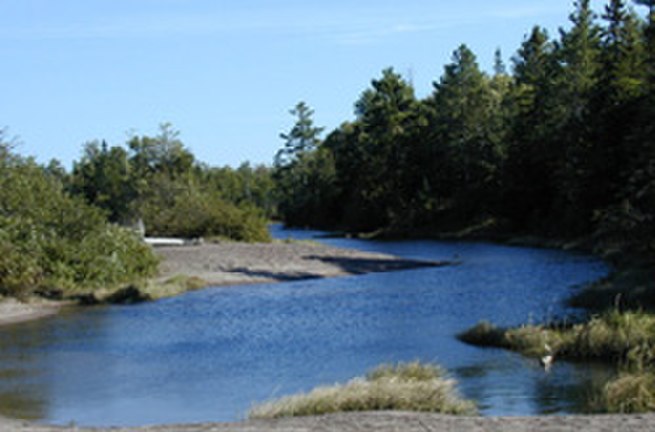
-
Habitat
In ecology, a habitat is the kind of natural environment in which a particular organism species lives. It is characterized by both physical and biological features. A species’ habitat is those places where it can find food, shelter, protection and mates for reproduction.
The physical factors are for example soil, moisture, range of temperature, and light intensity as well as biotic factors such as the availability of food and the presence or absence of predators. Every organism has certain habitat needs for the conditions in which it will thrive, but some are tolerant of wide variations while others are very specific in their requirements. A habitat is not necessarily a geographical area, it can be the interior of a stem, a rotten log, a rock or a clump of moss, and for a parasitic organism it is the body of its host, part of the host’s body such as the digestive tract, or a single cell within the host’s body.
Habitat types include polar, temperate, subtropical and tropical. The terrestrial vegetation type may be forest, steppe, grassland, semi-arid or desert. Fresh water habitats include marshes, streams, rivers, lakes, ponds and estuaries, and marine habitats include salt marshes, the coast, the intertidal zone, reefs, bays, the open sea, the sea bed, deep water and submarine vents.
Habitats change over time. This may be due to a violent event such as the eruption of a volcano, an earthquake, a tsunami, a wildfire or a change in oceanic currents; or the change may be more gradual over millennia with alterations in the climate, as ice sheets and glaciers advance and retreat, and as different weather patterns bring changes of precipitation and solar radiation. Other changes come as a direct result of human activities; deforestation, the ploughing of ancient grasslands, the diversion and damming of rivers, the draining of marshland and the dredging of the seabed. The introduction of alien species can have a devastating effect on native wildlife, through increased predation, through competition for resources or through the introduction of pests and diseases to which the native species have no immunity.
-
Environment (noun)
The surroundings of, and influences on, a particular item of interest.
-
Environment (noun)
The natural world or ecosystem.
-
Environment (noun)
All the elements that affect a system or its inputs and outputs.
-
Environment (noun)
A particular political or social setting, arena or condition.
-
Environment (noun)
The software and/or hardware existing on any particular computer system.
“That program uses the Microsoft Windows environment.”
-
Environment (noun)
The environment of a function at a point during the execution of a program is the set of identifiers in the function’s scope and their bindings at that point.
-
Environment (noun)
The set of variables and their values in a namespace that an operating system associates with a process.
-
Habitat (noun)
Conditions suitable for an organism or population of organisms to live.
“This park offers important amphibian habitat and breeding area.”
-
Habitat (noun)
A place or type of site where an organism or population naturally occurs.
-
Habitat (noun)
A terrestrial or aquatic area distinguished by geographic, abiotic and biotic features, whether entirely natural or semi-natural.
-
Habitat (noun)
A place in which a person lives.
-
Environment (noun)
the surroundings or conditions in which a person, animal, or plant lives or operates
“survival in an often hostile environment”
-
Environment (noun)
the setting or conditions in which a particular activity is carried on
“a good learning environment”
-
Environment (noun)
the overall structure within which a user, computer, or program operates
“a desktop development environment”
-
Environment (noun)
the natural world, as a whole or in a particular geographical area, especially as affected by human activity
“the impact of pesticides on the environment”
“a parliamentary environment committee”
